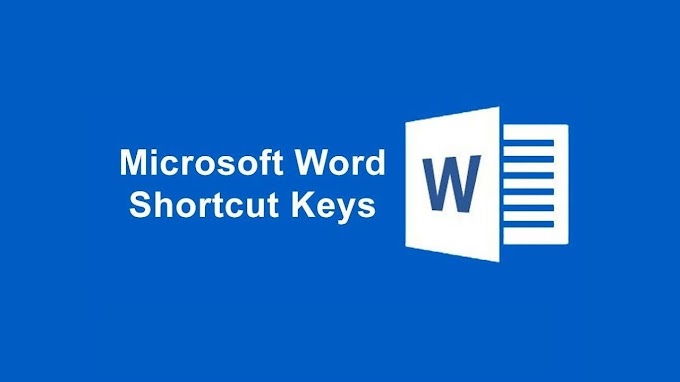NCERT Question Bank Table
Class 6:
Mathematics:
- Number Systems:
- Identify and solve problems related to whole numbers, fractions, and decimals.
- Geometry:
- Questions on shapes, angles, and symmetry.
- Data Handling:
- Interpret and create bar graphs and pictograms.
- Mensuration:
- Calculate the area and perimeter of basic shapes.
- Number Systems:
Science:
- Food:
- Questions on the importance of food and its different sources.
- The World of Animals and Plants:
- Identify different types of animals and plants and their characteristics.
- Body Movements:
- Explain the types of movements in the human body.
- Living and Non-living Things:
- Distinguish between living and non-living things based on their characteristics.
- Food:
Social Science:
- History:
- Key events and figures from ancient civilizations.
- Geography:
- Basics of physical geography such as landforms and climate.
- Civics:
- Understanding the role of government and civic responsibilities.
- History:
English:
- Reading Comprehension:
- Answer questions based on a given passage.
- Grammar:
- Identify parts of speech, tense, and sentence structure.
- Vocabulary:
- Synonyms, antonyms, and usage in sentences.
- Reading Comprehension:
Class 7:
Mathematics:
- Algebra:
- Solve linear equations and algebraic expressions.
- Geometry:
- Questions on triangles, quadrilaterals, and circle properties.
- Data Handling:
- Interpretation of data from various charts and tables.
- Mensuration:
- Calculate volumes of solid shapes.
- Algebra:
Science:
- Nutrition in Plants and Animals:
- Understand photosynthesis and nutrition in animals.
- Heat:
- Questions on the concept of heat and temperature.
- Acids, Bases, and Salts:
- Properties and reactions of acids and bases.
- Weather, Climate, and Adaptations:
- Understand climate types and animal adaptations.
- Nutrition in Plants and Animals:
Social Science:
- History:
- Key events and cultural developments in medieval history.
- Geography:
- Study of different types of natural resources and their uses.
- Civics:
- Understanding the role of local government and democracy.
- History:
English:
- Reading Comprehension:
- Detailed questions on themes and ideas from a passage.
- Grammar:
- Advanced grammar concepts such as voice and speech.
- Composition:
- Writing descriptive, narrative, and creative essays.
- Reading Comprehension:
Class 8:
Mathematics:
- Rational Numbers:
- Operations and properties of rational numbers.
- Linear Equations in Two Variables:
- Solve and graph linear equations.
- Geometry:
- Questions on angles, polygons, and circles.
- Mensuration:
- Calculate surface areas and volumes of complex shapes.
- Rational Numbers:
Science:
- Cell Structure and Function:
- Understand cell components and their functions.
- Reproduction in Animals and Plants:
- Questions on reproduction methods and lifecycle.
- Force and Pressure:
- Concepts of force, pressure, and their applications.
- Chemical Effects of Electric Current:
- Basic understanding of electrolysis and related phenomena.
- Cell Structure and Function:
Social Science:
- History:
- Key events in the freedom struggle and post-independence.
- Geography:
- Study of resources, industries, and their impact on the environment.
- Civics:
- In-depth understanding of the Indian Constitution and governance.
- History:
English:
- Reading Comprehension:
- Analyzing complex texts and answering interpretative questions.
- Grammar:
- Detailed questions on sentence structure, clauses, and phrases.
- Composition:
- Writing essays, reports, and summaries.
- Reading Comprehension:
Class 9:
Mathematics:
- Polynomials:
- Operations and factorization of polynomials.
- Coordinate Geometry:
- Questions on plotting points and lines on a graph.
- Linear Equations in Two Variables:
- Solving and graphing linear equations.
- Statistics:
- Mean, median, mode, and range of data sets.
- Polynomials:
Science:
- Matter in Our Surroundings:
- States of matter and their properties.
- Atoms and Molecules:
- Basic concepts of atomic structure and chemical bonding.
- Force and Laws of Motion:
- Newton’s laws of motion and their applications.
- Sound:
- Properties and propagation of sound waves.
- Matter in Our Surroundings:
Social Science:
- History:
- Major events from the French Revolution to World War I.
- Geography:
- Physical features of the Earth and map-based questions.
- Civics:
- Understanding the democratic system, rights, and responsibilities.
- History:
English:
- Reading Comprehension:
- Understanding and analyzing prose and poetry.
- Grammar:
- Advanced topics including tenses, modals, and voice.
- Composition:
- Writing analytical essays and creative stories.
- Reading Comprehension:
Class 10:
Mathematics:
- Quadratic Equations:
- Solving and graphing quadratic equations.
- Triangles:
- Properties and theorems related to triangles.
- Trigonometry:
- Basic trigonometric ratios and their applications.
- Probability:
- Understanding probability concepts and problems.
- Quadratic Equations:
Science:
- Chemical Reactions and Equations:
- Types and balancing of chemical reactions.
- Periodic Classification of Elements:
- Trends in the periodic table and element properties.
- Human Eye and Colorful World:
- Understanding vision, colors, and optical phenomena.
- Electricity:
- Ohm’s law and circuit analysis.
- Chemical Reactions and Equations:
Social Science:
- History:
- Major events from the rise of nationalism to post-independence India.
- Geography:
- Human geography including population, urbanization, and resources.
- Civics:
- In-depth understanding of political institutions and their functions.
- History:
English:
- Reading Comprehension:
- Analyzing detailed and complex texts.
- Grammar:
- Comprehensive questions on advanced grammar topics.
- Composition:
- Writing argumentative essays, reports, and creative pieces.
- Reading Comprehension:
This table provides a broad overview of potential content for an NCERT Question Bank. For more detailed questions and specific content, refer to the NCERT textbooks and sample papers for each class and subject.




